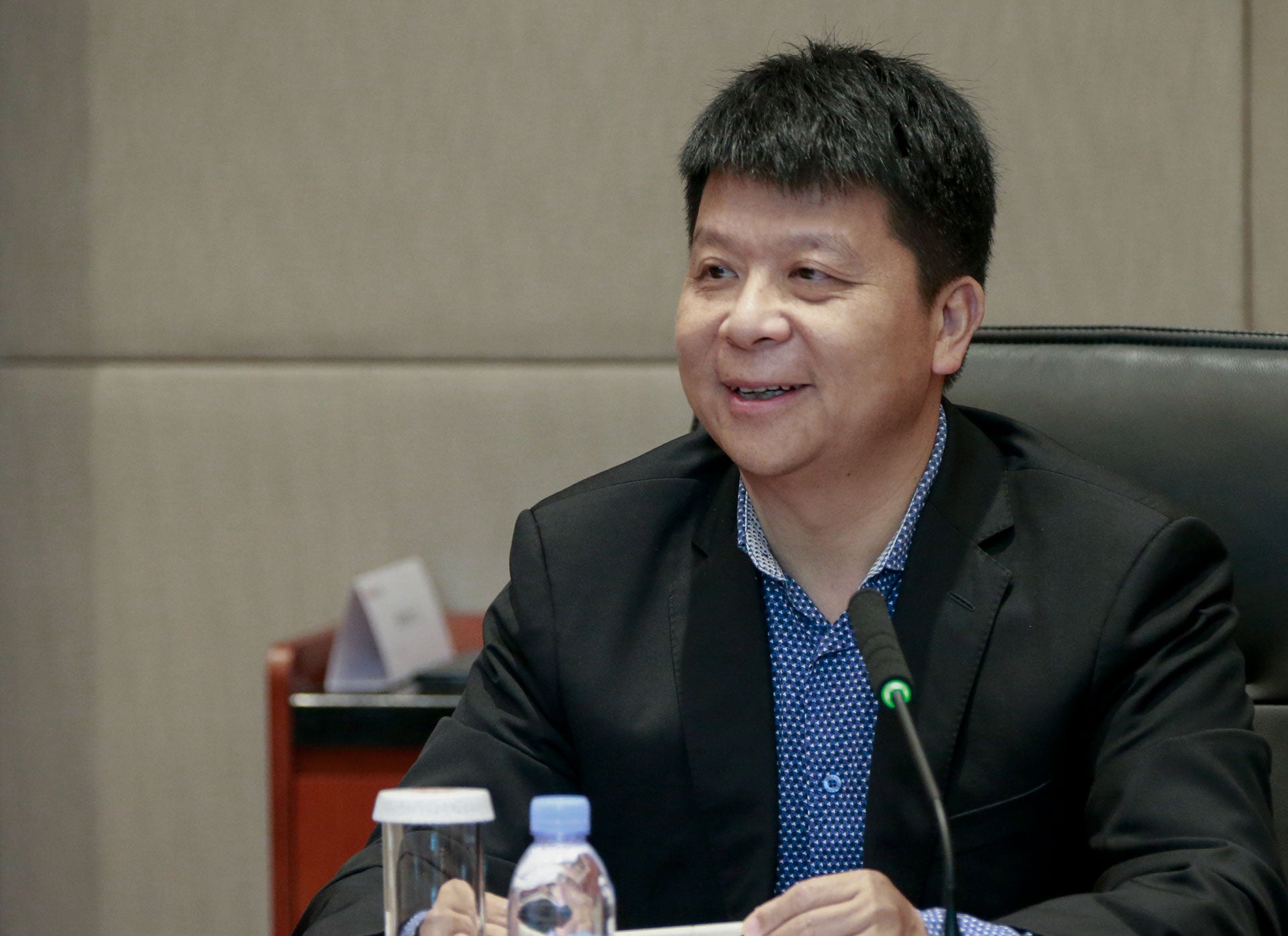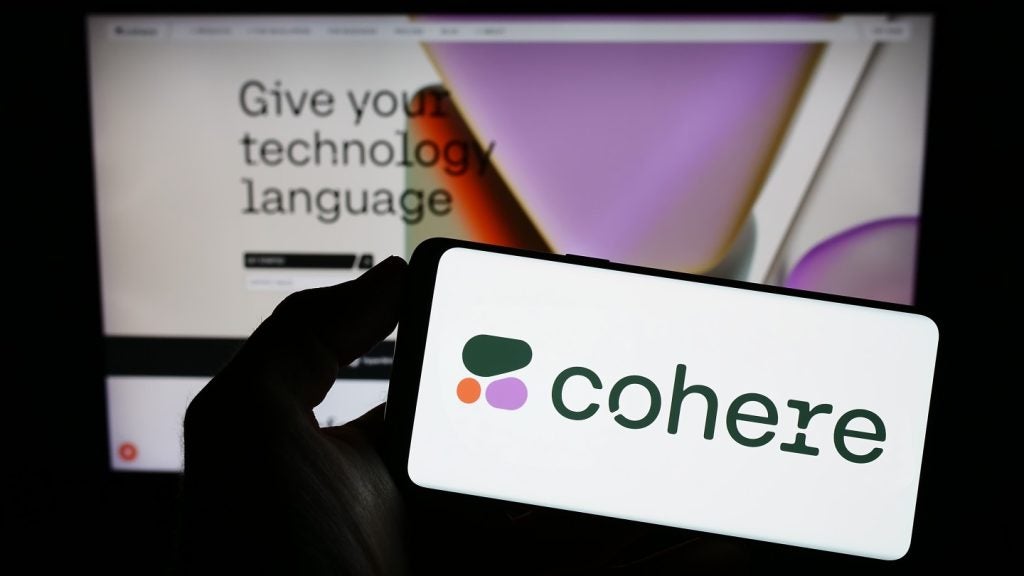
Huawei rotating chairman Guo Ping doesn’t give interviews often, so when a small group of journalists from UK publications, including Verdict, were given the chance to ask him questions at a media roundtable in Shenzhen, China, it was a rare and valuable opportunity to hear the thoughts of one of the Chinese tech giant’s most important people.
From his opening statement, it was clear that maintaining and building on the – at times rocky – support of the UK is a key goal for Huawei, which may explain why, of all the visiting journalists who flocked to China to cover Huawei Connect 2019, the company’s annual conference, it was the British journalists who were granted access to Guo.
“Huawei has been doing business in the UK for more than 18 years. We highly appreciate the recognition and trust placed in us by our customers and other stakeholders across the country,” he said.
Making the case for Huawei in the UK is an ongoing challenge for the company, particularly given the pressure from the US to ban its technology in upcoming 5G infrastructure. While the UK has so far avoided following the Trump administration’s requests – likely in part because this would involve replacing existing infrastructure as well as stopping the use of Huawei products in new installations – the threat of a ban still remains.
However, Huawei’s involvement in the UK goes far beyond 5G. As Guo reminded the assembled journalists, the company acquired UK-based CIP Technologies in 2012 and set up a research centre in Ipswich that “has a team of over 90 employees” and which Guo hailed as “a very good example of our ongoing technological collaboration with the UK”.
“Our efforts don’t just help the technical professionals of the UK serve a wider community around the world though,” he added. “They also enable the UK’s technology and Huawei’s products to be applied across the globe.”
How well do you really know your competitors?
Access the most comprehensive Company Profiles on the market, powered by GlobalData. Save hours of research. Gain competitive edge.

Thank you!
Your download email will arrive shortly
Not ready to buy yet? Download a free sample
We are confident about the unique quality of our Company Profiles. However, we want you to make the most beneficial decision for your business, so we offer a free sample that you can download by submitting the below form
By GlobalDataHuawei in the UK: Guo Ping makes the case for UK R&D collaboration
As with any major company, Huawei has made efforts to woo the UK government, such as in the aftermath of its acquisition of CIP Technologies.
“I can still clearly remember, when the acquisition was finalised, we threw a cocktail party in celebration. Many local government officials, including ministers, joined us that night,” said Guo.
“We were very pleased that this UK technology could stay in the UK and would continue to receive funding for future development. I also hope this kind of R&D collaboration with the UK can continue and grow even further, as it benefits both Huawei and the UK.”
Of course, Huawei’s plans are far more complex and wide-ranging than just its place in the UK, however, Guo sees the UK as important to its future developments, particularly when it comes to trade – and especially given its current issues with the US.
“Looking to the future, Huawei will continue to embrace and enhance our partnerships with different players to jointly develop an ecosystem that creates shared success,” said Guo.
“I hope the UK can play a bigger role in that journey. I believe that the results of our joint R&D initiatives in the UK will be widely used across Huawei’s products and solutions, which will be deployed in countries and regions across the globe.
“The UK has been a founding member and a supporter of the global free trade system. I believe that the UK will continue to firmly support and benefit more from free trade in the future.”
Away from “an international superpower”: Creating more user choice
While Guo Ping largely avoided talking plainly about Huawei’s issues with the US, the discussion was peppered with references this political elephant in the room, or as Guo put it, “an international superpower”.
“Since May of this year, an international superpower has been using every tool at its disposal to crack down on us. Despite that, we have still maintained solid growth and we are confident that we will survive and thrive,” he said.
“We are confident that we will see growth next year. Several months ago, Dr Hermann Hauser, co-founder of ARM, published an article in a UK newspaper where he described that it was possible for global tech companies to build a tech ecosystem without this superpower.”
He was keen to reassure UK users of Huawei products that the ongoing issues in the US would not cause problems with their current devices, adding that if the ongoing trade blacklist resulted in future products being unavailable – apparently a reference to the Google Play Store being unavailable on new Huawei smartphones – the company would “take a responsible attitude and work with the relevant parties to come up with the right solution”.
However, he also encouraged the UK software industry to develop more localised products, rather than relying on US-developed applications and services, as is often the case with companies such as Uber and Airbnb.
“We encourage UK companies to develop more applications so local users can have more choices,” he said.
“As far as I know, there are a lot of applications that cater to local needs in Japan, South Korea, France, Russia, and China. I really hope UK companies working on application development will catch up.”
“Huawei has and will not monetise user data”
Guo Ping also took aim at the slew of technology companies using user data as a core part of their profit model, stressing that Huawei would never take this approach.
“Huawei has not and will not monetise user data. This is how we set ourselves apart from internet companies. Huawei is a technology company, and we earn our profit and revenue through the sale of technological products, rather than monetising others’ data,” he said.
He drew attention to Huawei’s involvement in the UK telecoms industry as an example of this.
“In the telecom carrier domain, it is UK telecom carriers, not Huawei, that own carrier networks. Because of this, we don’t own the data that goes through the networks, and it’s the carriers and data owners that own the data,” he said.
“Our technology can ensure that the data passing through our products won’t be stolen. This is how we help data owners and data controllers operate in accordance with the law from the perspective of IT process operations.”
Removing mountains: Taking on Intel
While Huawei has built strong foundations in UK R&D, telecoms and consumer devices, there are areas where it remains only a very minor player, such as servers, where Intel dominates distribution and in which companies would struggle to access Huawei’ Kunpeng server products.
However, when asked about this, Guo Ping was bullish about Huawei’s prospects in this area.
“There is a well-known parable in China called The Foolish Old Man Removes the Mountains, which teaches the virtues of perseverance and willpower,” he said.
“Many sectors in the world are now dominated by some big companies. However, I think companies, including those in the UK, should adopt a multi-supplier and multi-channel strategy to ensure their security and business continuity. Huawei has been able to survive and develop because of such a strategy.”
He drew reference to a book by Nassim Taleb concerning globalisation, arguing that companies should consider using Huawei technologies as a backup to Intel.
“In this book, Mr Taleb asked whether globalisation has been humanity’s another attempt to build a Tower of Babel,” he said.
“Likewise, I believe that China, the UK, and many other countries should reinforce communication, and work together to further drive globalisation.
“However, considering potential risks and business continuity, companies could consider preparing a Plan B during their business development, so that they won’t be impacted by political uncertainties. For example, if a company’s supply were disrupted, they could turn to using Kunpeng.”
The transparency challenge
Huawei has in the past faced accusations of a lack of transparency – largely the result of differing business cultures between China and the US, however, the company is currently making a conspicuous effort to improve in this area.
Guo Ping was surprisingly candid about the company’s past issues with transparency, indicating that he supported the more open approach Huawei is now trying.
“If we didn’t do enough in the past, we are now committed to further enhancing our openness, collaboration, and transparency in the foreseeable future. This way, our stakeholders, including our customers and consumers, will have greater confidence in us and choose Huawei’s advanced products and services,” he said.
“Huawei is not a public company. Since around 2000, however, we have hired an international auditing firm to annually audit Huawei’s financials. Each year, we publish our annual report and we keep engaging with all stakeholders, including our customers and suppliers.
“Gaining the trust and support of our customers, end users, and other stakeholders is of paramount importance to Huawei.”
Read more: Notes on the Huawei saga: From Chinese tech giant to political football






